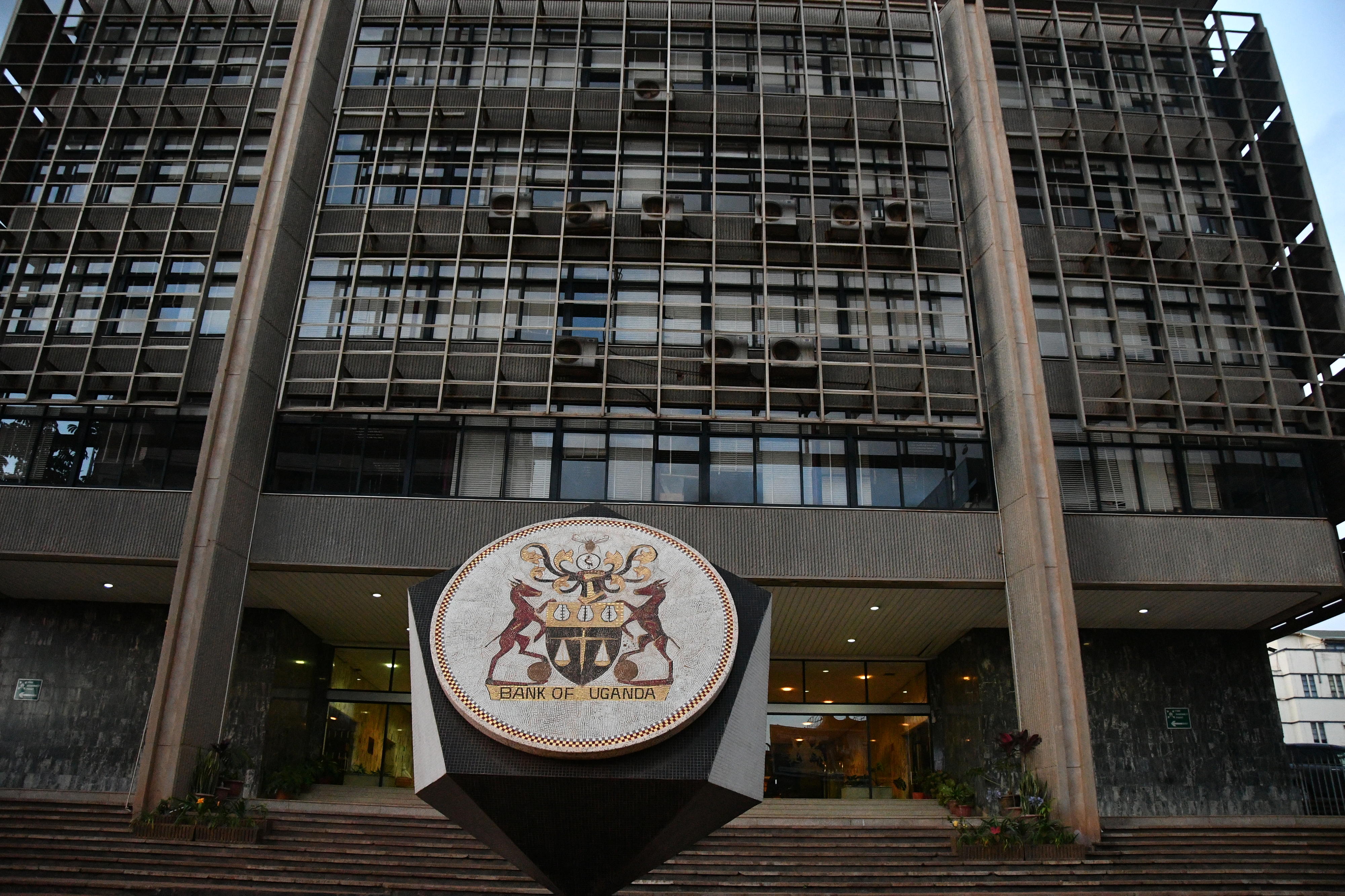Prime
What you need to know about Islamic banking

Officials from the Ministry of Finance, Bank of Uganda and employees of Salaam Bank pose for a photo during the issuance of Islamic Banking licence on September 8, 2023.
What you need to know:
- Islamic banking, according to different financial scholars and available encyclopedia is among the six components of Islamic financial system, offered in accordance with Sharia principles, including; prohibiting interest-based transactions and promoting ethical, fair, and transparent banking practices.
- It also operates on principles such as profit and loss sharing, risk-sharing, and asset-backed financing, where transactions are structured to comply with Shariah principles, avoiding interest charges and speculative activities.
The chief executive officer of Salaam Bank, Mr Michael Mande, has revealed that individuals who seek to buy assets can now access funding on a no-interest basis through Islamic banking.
In alignment with Shariah (Islamic) principles, Salaam Bank, a subsidiary of the Djibouti-based Salaam Group, last Friday became the first Ugandan bank to receive an Islamic banking licence from Banking of Uganda (BoU).
Mr Mande, in an interview yesterday, said the bank would roll out different products in a phased manner, starting with debt-like financing structures; where it will buy an asset and sell it to the customer at a markup.
In this category, known as Murabahah (sales contract at a profit markup), the customer (borrower) seeks financing to acquire an asset, such as land or a car. Here, the bank acquires the property first before subsequently selling it to the customer at a price higher than the acquisition cost. This sale occurs with a deferred payment schedule, ultimately generating a profit.
“You [client] will make all the due diligence, negotiate the price and finish all the paperwork and the bank will just come in to help you in making payments. One will ask how shall we make profits? Internationally it is accepted that when buying anything in cash, the price is always lower but if its deferred payment one adds some little profits, which we shall be getting,” he said.
Interest-free loans
“The difference here,” Mr Mande said, “the bank will not be charging interest on the money and the client will only pay the agreed money over a certain agreed period of time.”
Another category that is not yet being offered at Salaam Bank is the Mudarabah (silent and active partner), where the bank acts as the silent partner and enters a partnership in which the bank will provide funds to a customer/borrower for investment in a business venture.
“Both of us shall then share the profits accruing from the investment in accordance with a pre-agreed ratio, but any losses are borne by the financial institution, except where it is confirmed that the losses arose due to the borrower’s negligence, in which case the borrower bears all the losses. In this contract, the bank is mandated to engage in the day-to-day management of the business/project,” Mr Mande said.
“In this case, the client will give us shares in their business and we start operating it together as we share both profits and losses, as they pay off their loan obligation. The more you pay off your loan amount, the more we reduce the shares and by the time you are done, we just leave your business,” he added.
Mr Mande said this primarily applies to well-structured businesses possessing comprehensive documentation, including a performance history and financial records.
“One has to be with an account with us, we later study their business and that is why this product, despite of its availability, has not yet been dispersed to the public,” he said.
He, however, noted that Salaam Bank will only finance halal (Islamically acceptable) business and, therefore, those dealing in businesses such as alcohol, and gambling are disqualified.
“We have started registering clients as people are slowly embracing the product because at our offices at Rwenzori Towers, which we shall in future expand countrywide, people have started coming but there is much need for awareness so that people understand this banking because some people think it’s for Muslims only yet it is for all people,” Mr Mande said.
Islamic banking, according to different financial scholars and available encyclopedia is among the six components of Islamic financial system, offered in accordance with Sharia principles, including; prohibiting interest-based transactions and promoting ethical, fair, and transparent banking practices.
It also operates on principles such as profit and loss sharing, risk-sharing, and asset-backed financing, where transactions are structured to comply with Sharia principles, avoiding interest charges and speculative activities.
Deputy BoU Governor explains
BoU’s deputy Governor Michael Atingi-Ego last Friday said they were committed to providing oversight and support to Salaam Bank Limited as it embarks on the new journey.
“Islamic banking has the potential to make a significant contribution to the development of Uganda’s financial sector,” he said.
A section of commercial banks under their umbrella body, Uganda Bankers Association, yesterday said they were considering joining the system.
The association’s executive director, Wilbrod Humphreys Owor, said their members have already applied for licences pending confirmation.
“We, three of their 36 members are in the process of implementing it. But majority of our members will join in future,” he said.
The director-in-charge of Islamic Investments at the Micro-Support Centre, Mr Sulaiman Luggya, said other commercial banks have expressed interest in Islamic banking.
“I am sure more banks will join since they have already applied for certificates,” he said.
Mr Luggya said majority of the banks are likely to start with the asset financing model because it is safer unlike the profit/loss sharing, which is uncertain on the returns.
“I don’t think there is any bank that will want to start from making losses by partnering with each and every business on streets. They will start in this category of asset financing because it is encouraging investment,” he added.
Profit and loss sharing
Mr Luggya said the second product of profit/loss sharing will be implemented by banks after they measure the prevailing market prices.
“Since the doors have been opened by the government through signing into law the Financial Institution Amendment Bill by the President recently, we expect more banks to join the market because this is not for only one bank, I am sure no local commercial bank will like to see its Muslim customers migrating to Salaam, so they will have to adopt this product as well,” he said.
Mr Issah Katungulu Luyimbaazi, the African youth ambassador of the World African Diaspora Union, said youth, especially entrepreneurs, will benefit more.
“Youth entrepreneurs struggle to obtain the required liquidity to keep their business going or even to get started with a business. To obtain the start-up capital that is needed for a business, a bank will require collateral, which is difficult to obtain in the process of starting a new business and that is why we are happy with operationalisation of this banking system,” he said.
Mr Luyimbaazi added that Islamic banking will promote financial inclusion, reduce the impact of harmful products and practices, improve transparency, accelerate economic development and promote stability in investments.




